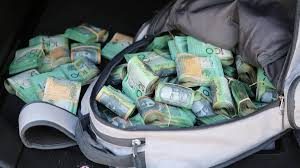What is a Charge of Dealing with Proceeds of Crime?
Dealing in proceeds of crime is a criminal offence contrary to the Crimes Act 1900 (NSW) section 194.
What is the definition of “dealing”?
‘Dealing’ involves transporting, having possession of, taking care of property and a range of other ways that people can be involved in or connected to property that in associated with criminal activity. The property can include anything from items such as credit cards, jewellery, cars or cash.
This offence of dealing with the proceeds of crime involves the following:
- Dealing with property this is in fact proceeds of crime; and
- The person dealing with the property must have some degree of knowledge that the property was proceeds of crime.
What are the penalties for dealing with the proceeds of crime?
If the person who has property that is connected to criminal activity knows that property is derived or connected to crime and attempts to conceal that property they face a maximum term of imprisonment of 20 years.
If the person only knows and does not attempt to conceal the property the maximum penalty is 15 years.
If the person is reckless to the possibility that the property is proceeds of crime the maximum penalty is 10 years and if the person is negligent as to the possibility that the property is proceeds of crime the maximum penalty is 5 years.
So, generally, the penalty for dealing with the proceeds of crime largely depend on “how far” the accused person takes the dealing. Much also depends of the actual amount of the alleged proceeds. For example, a person charged with dealing with proceeds of crime totalling $1,000,000 would likely receive a much heavier sentence than someone dealing with proceeds of crime totalling $1000!.
A sentence for dealing with proceeds of crime is therefore very wide ranging. Sentences can range from a section 10 without conviction, to long full time terms of imprisonment.
How do you defend a charge of dealing with proceeds of crime?
Depending on the circumstances there may be a number of ways to defend this charge, for example there may be no way of proving the property was actually proceeds of crime. Very often it is particularly difficult for the prosecution to prove beyond reasonable doubt that the money is actually “the proceeds of crime”. There may also have been no possible way for you to know the money was proceeds of crime.
You may also be able to reduce the charge from a more serious offence that carries a greater penalty to one of the less serious offences by negotiating with police.
If you have been charged with an offence of dealing in proceeds of crime it is a good idea to contact a lawyer who specialises in these types of offences. These are very technical offences and the law is very specific in relation to how a person forms the specific mental element of each offence. This is an offence which should be handled by a lawyer with experience in these types of matters.
LY Lawyers has dealt with many of these matters involving large amounts of money and valuable property. We will be able to advise you on whether you can fight the charge or negotiate a less serious charge.
Call LY Lawyers 24/7 on 1300 595 299 to arrange a free consultation with one of our experienced lawyers.







